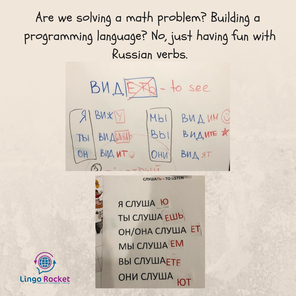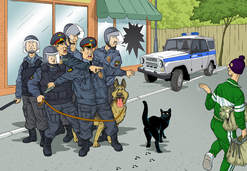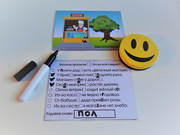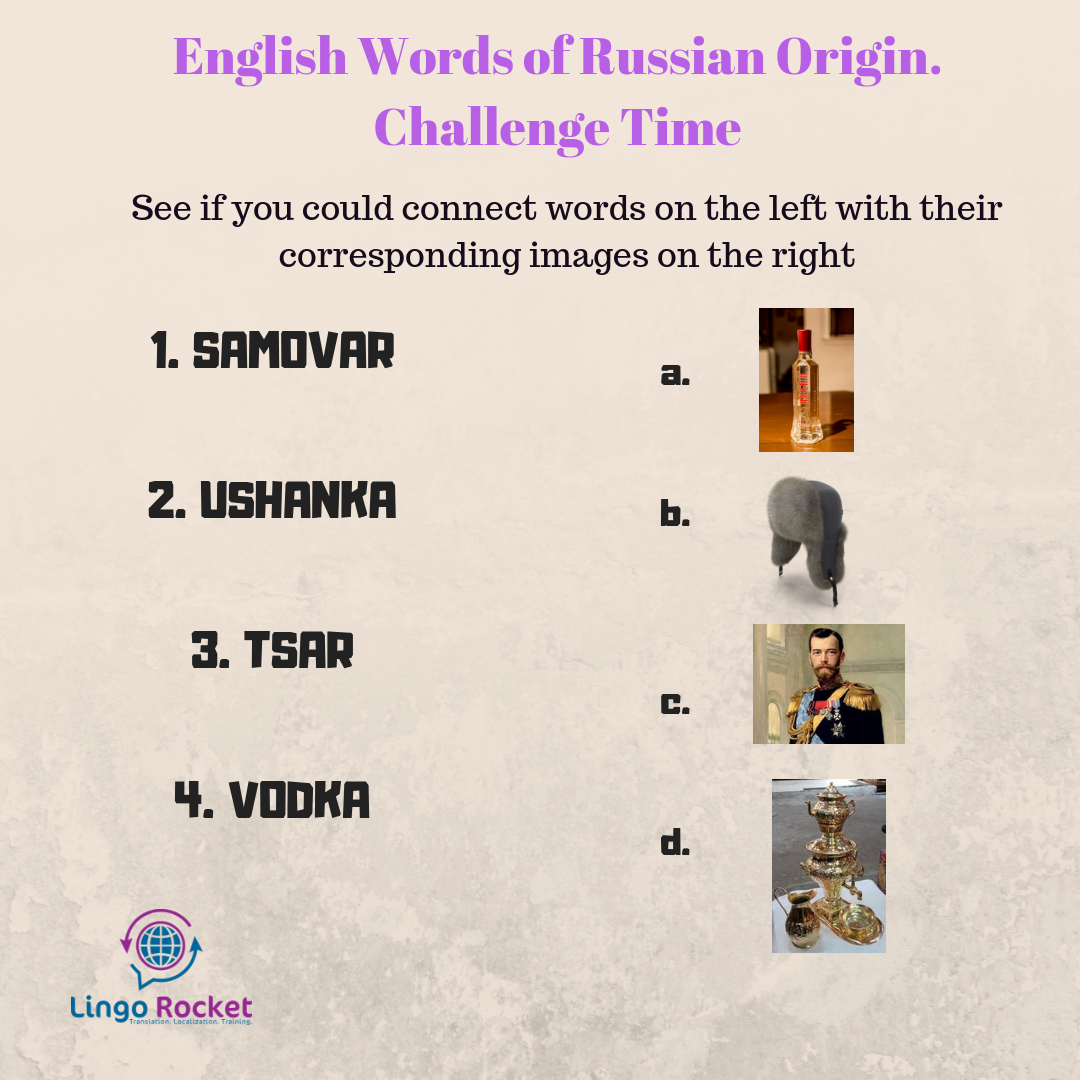LINGO ROCKET BLOG |
|
Russian Language Challenge Time. Test your Russian knowledge by completing the task in the image below.
0 Comments
 Russian verbs could easily be the most-complained-about aspect of learning the language. Think about having six different forms of each verb in past, present, and future tenses. The good news is that once you figure out Russian conjunction pattern you will be able to use the verbs correctly. Another good news is that Russian does not have a complicated verb tense system like English. There are only three tenses: Past, Present, and Future. That said, you will have to pay a thorough attention to Russian verbs of motion. It is not just “go” but also “carry”, “come”, “fly”, “swim”, “regularly go”, “go and come back”, “go around to several places” and many more. Another topic you will have to spend time on is verb aspect, which could be “perfective” or “imperfective.” Imperfective aspect is used for repeated or habitual actions or to indicate a single action in progress and therefore incomplete. E.g. “I work every day.” Perfective aspect is used for a single, completed action in the past or in the future. E.g. “I have finished this book.” After teaching Russian for many years, I noticed that sometimes it’s worth to learn basic verbs by heart, then study the patterns of conjugation, and then just tackle perfective/imperfective verbs in pairs. Once you understand the conjugation patterns, you can get away with just learning the infinitives without breaking it all the way down to each conjugation for each aspect of the verb.  • Black Cat Crossing the Road Russian superstitions, depending on their purpose, can bring you good luck or failure. One of the most known and feared Russian superstitions is a black cat crossing the road. It turns out that this prejudiced attitude towards black cats comes from ancient Russia. At that time, pet owners were afraid to let black cats out of the house, as the cats were valued very much and considered family members. If spotted outside, a cat meant misfortune. But over time the number of these stray animals grew larger and larger and this prejudice became very famous. After all, black color is associated with evil spirit. • Knocking on Wood Just like in the West, when someone in Russia says something they hope will remain that way (e.g. "I’m quite healthy") they will knock on wood. However, they don’t actually say “knock on wood”. They perform the knocking action and then spit three times over their left shoulder (usually not literally spitting – just making the motion and sound). This is supposed to symbolize spitting on the Devil. Even if they don’t do the spitting part, Russians will still tend to literally knock on something – and in the absence of wood, usually their own heads. • Spilling Salt Is an Evil Omen To protect themselves from misfortunes Russians are very careful when it comes to spilling salt. It is believed that if you scatter salt then arguments with people close to you are inevitable. The rationale here is that in ancient Russia salt cost a lot of money and spilling it could lead to a fight. • Sitting Down Before a Trip Russian people have a tradition of sitting down somewhere near the door inside their home before going on a trip. Even if just one person is going away, the whole family will sit down – just for a short while, 30 seconds to a minute. This is supposed to ensure a successful trip. • Hiccups (Yes, even hiccups) If you have the hiccups, Russians say it means that somebody is thinking about you. • Stepping on Someone's Foot If a person accidentally steps on your foot in Russia, it’s quite common for the person stepped on to lightly step onto the other’s foot. This is because an unreturned step means that the two will have a fight in the future. Returning the offense prevents the fight.  Whether you are a fan of Russian literature, interested in Russia’s investment opportunities, or a traveler captivated with visiting a vibrant country that offers a chance to visit extreme Far East, colorful resort towns, Red Square, and taiga; you might want to embark on an adventure of learning Russian language. We’ve invested some time into researching best resources for learning Russian so you can jump right into learning this fascinating and rewarding language. Great resources for learning and teaching Russian as a foreign language. Here you can find tons of great activities for both kids and adults, amazing book recommendations, read about raising bilingual kids, and download Russian worksheets. You can even find useful exercises that you can do before and after reading “Tom Sawyer” in Russian. Mosfilm is the largest and oldest Russian film studio. Some of the movies on their website are with English subtitles and all of them are truly amazing. Enjoy immersing yourself into the world of Russian language and culture. Great website for strengthening your Russian vocabulary, learning Russian pronunciation, mastering Russian grammar, and exploring FREE interactive lessons. Another great resource for learning any language is listening to a podcast. BBC’s “Fifth Floor” lets you get your fix of current events while mastering your Russian proficiency. You can even download podcasts and listen to them at your own convenience. If you are looking for more great resources for learning Russian that in return can help you improve your employment opportunities, learn more about Russia’s science and technology, or get immersed into Russian culture, be sure to email us at [email protected] or give us a call at 804-997-9308. |
|
|


 RSS Feed
RSS Feed

